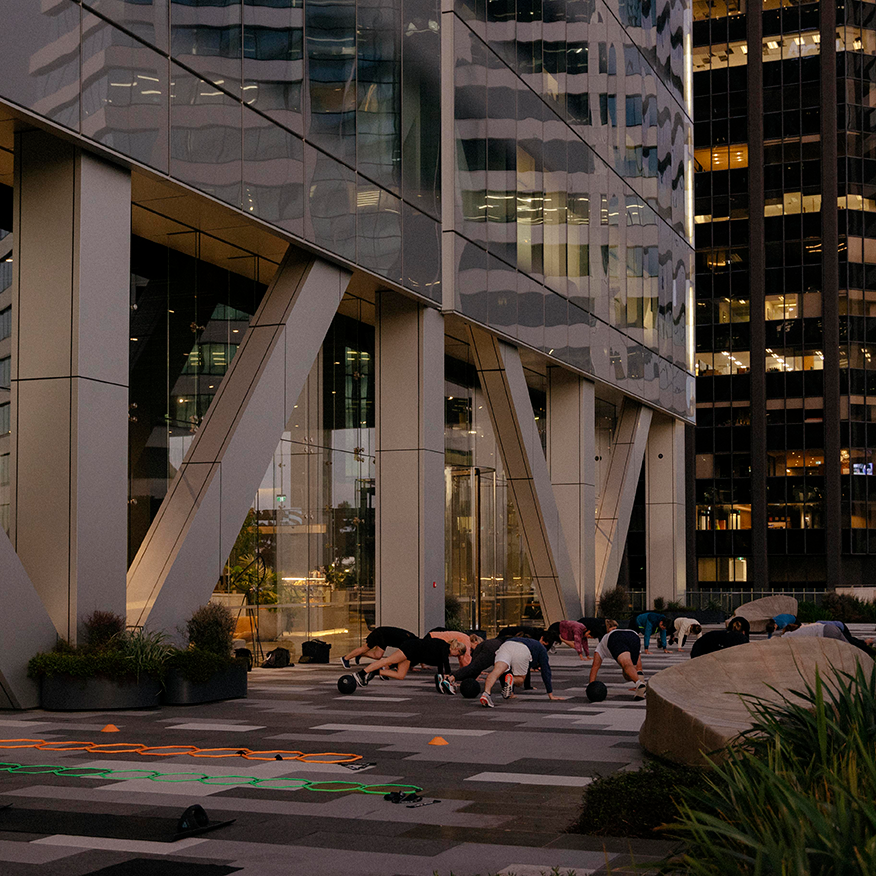
At Fitness All Together we love to support our clients in reaching their fitness and wellness targets. We know it can be challenging, but with the right strategies you can build a sustainable and effective workout routine. We’re sharing our research backed steps to help you stay motivated and create life-long fitness habits.
What’s your ‘why’?
When you’re intrinsically motivated, you do things because you enjoy them and get personal satisfaction from them. When you’re extrinsically motivated, you do something in order to gain an external reward. Research suggests that you’re more likely to stick at something when there’s intrinsic motivation - so make sure you’re enjoying the process as much as the results.
Choosing a workout that gives you added benefits like social connection or fresh air will give you more reasons to keep up the healthy behaviour than if you’re focused on physical changes or undoing the damage of unhealthy habits. Focus on the benefits that occur as soon as you get moving; increased energy levels, reduced stress levels and that endorphin high you experience straight after a workout.
Plan to succeed
If you set goals and then you meet them, that’s rewarding but if you set goals that are too hard to achieve right away, you will be disappointed and lose motivation. Once you have settled on a goal, create a clear plan for achieving it. Avoid going too broad or setting an unrealistic time frame. Break your goals down and assess your progress regularly. Fitness routines shouldn’t leave you burnt out or at risk of injury. Your body needs time to adapt and recover so don’t overcommit to one type of exercise - try balancing your higher intensity workouts with low impact or restorative practices such as yoga and meditation.

Habits trump motivation
Willpower is finite and when it fails, we revert back to our existing habits. Build better daily habits to support your goals and remove your reliance on willpower. These take time to create and the best way to start is by introducing small, consistent changes into your routine. Small changes add up and you start to experience a compounding effect overtime.
Find a supportive environment
Exercising with other people is a great tool to keep you on track. Making a commitment to someone else means you’re less likely to cancel at the last minute. Using group fitness classes also creates the ‘group effect’. A 2019 study revealed that exercisers experience increased levels of individual enjoyment, exertion and satisfaction as a result of group exercise. Mark Beauchamp, a professor of exercise and health psychology at the University of British Columbia, revealed “When people feel socially connected to exercise, they show greater long-term commitment than when they work out individually.”
Failure is an opportunity
Shift your mindset around failure, if you haven’t managed to stick to your initial plan or aren’t seeing the results you hoped for then it’s not time to stop, just to re-evaluate. Does your new routine match up to your lifestyle? Are you truly enjoying it? Do you have the right support system around you? Once you’ve identified the problem you can start removing barriers to success, rather than quitting altogether.
At Fitness All Together we know how great movement can make you feel. Our trainers are all passionate about giving you the best workout experience, every time. FAT is a growing community of people who have fallen in love with movement for all the right reasons. We’ve watched people start slowly and build up their passion for fitness with us. If you’re interested in joining our community of fitness enthusiasts, reach out to kevin@fitnessalltogether.
References
5 steps to start a fitness program. (2021, December 16). Mayo Clinic. https://www.mayoclinic.org/healthy-lifestyle/fitness/in-depth/fitness/art-20048269 (https://www.citefast.com/%E2%80%8B%E2%80%8Bhttps://www.mayoclinic.org/healthy-lifestyle/fitness/in-depth/fitness/art-20048269)
Determinants of physical activity practices in metropolitan context: The case of Lisbon metropolitan area, Portugal. (2021, September 9). MDPI. https://www.mdpi.com/2071-1050/13/18/10104 (https://www.mdpi.com/2071-1050/13/18/10104)
Physical activity, natural environment, present moment awareness, and its consideration: A qualitative review. (2021, July 28). MDPI. https://www.mdpi.com/2071-1050/13/15/8436 (https://www.mdpi.com/2071-1050/13/15/8436)